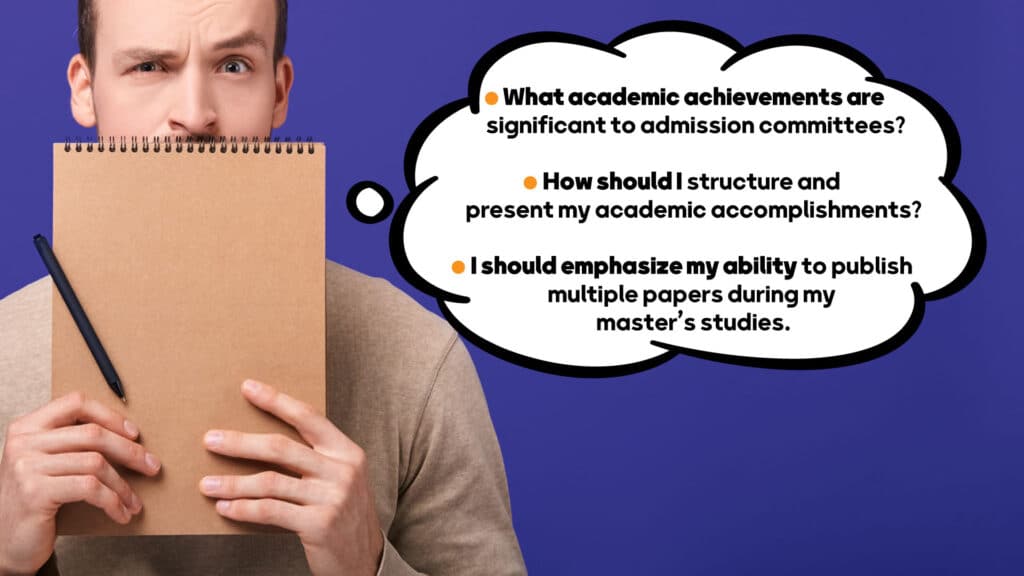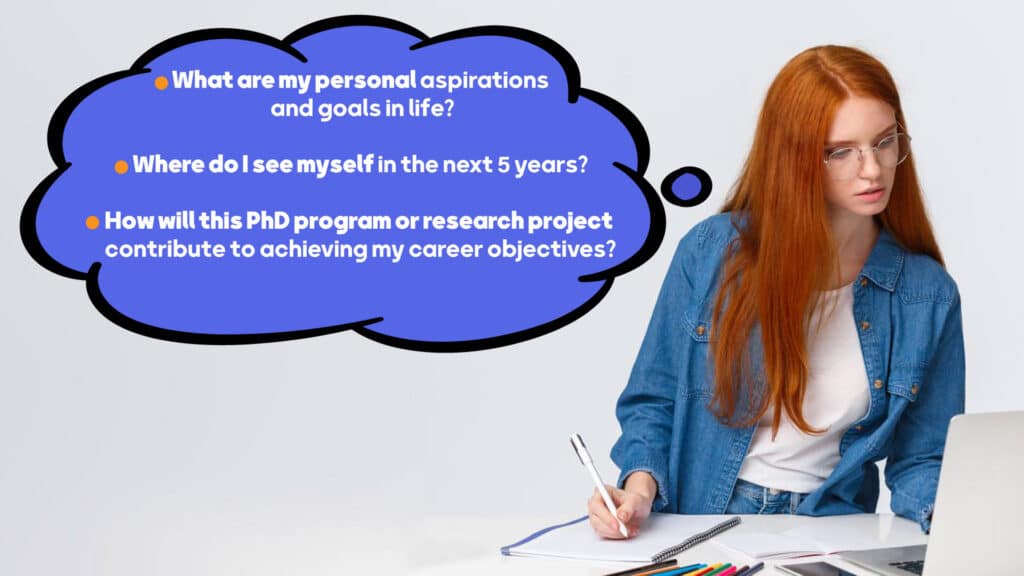
A compelling motivation letter for scholarship applications is the second crucial component of your application package after an academic CV, no matter whether you are targeting an undergraduate, a master’s, or a PhD scholarship. A well-crafted motivation letter is a powerful tool in the competitive scholarship landscape. It enables students to articulate their unique qualifications, aspirations, and the impact they aspire to make. It is your opportunity to show that you are self-motivated and that your academic and professional objectives are clear. A motivation letter should expand on your CV and bridge the two key elements: your credentials and your motivation for pursuing the scholarship. This article aims to unravel the complexities of writing an effective scholarship motivation letter.
Motivation Letter for Scholarship Format
A letter of motivation for scholarship applications is your personal story with a purpose, not just a formal requirement. Therefore, how you write a motivation letter for a scholarship is just as important as the content. Selection committees can see your vision, values, and personality through this motivational letter. Clarity and flow are produced by structure, which helps the reader with your narrative. Make a strong connection between your background and your goals in your introduction. This could be a personal challenge (typically for need-based scholarships), a clear declaration of intent, or a turning point in academia. Between two and three paragraphs should make up the body of your letter of motivation:

- One that highlights your areas of interest, significant accomplishments, and academic background.
- Another detailing pertinent professional experiences or extracurricular activities.
- a third, if any, that relates these components to your long-term objectives.
Finish on a positive note by restating your reasons for applying, emphasizing how your application fits the scholarship, and expressing gratitude for the chance. Every paragraph should flow naturally into the one after it, creating a coherent whole. Keep in mind that a strong motivational letter for scholarship applications directly links the past and the future. Using your prior experiences as a starting point, consider what lessons you learned from them. How did they influence your goals and outlook on life? Then, describe how the scholarship serves as a springboard, allowing you to expand on that base and work toward more ambitious objectives. This demonstrates your journey’s continuity and reaffirms your preparedness.
Motivation Letter’s Introduction Section
First impressions always matter. Your introduction should immediately draw the reader into your story. Rather than starting with a list of qualifications, use this section to make your application more engaging and relatable. You might open with a brief story about how you became interested in your field or highlight a pivotal moment that shaped your academic or professional goals. Make sure your opening connects directly to the scholarship’s focus and remains concise. Strike a balance between avoiding both heavy jargon and overly generic language, since your letter may be read by a broad audience. From the very first sentence, a genuine and passionate tone can set your application apart.
Academic Achievements
Scholarship committees look for motivated and well-rounded applicants. Now is the time to highlight the qualities that have made your journey unique. A scholarship motivation letter demonstrates you can succeed in demanding settings and have impactful contributions outside the classroom. The motivation letter is where you narrate your academic CV. Start by highlighting your accomplishments, such as exceptional GPAs, awards specific to your subject, research participation, or competitive projects. Perhaps you have overcome challenges, changed careers, balanced work and school, or led a community project. These experiences foster traits like resilience and flexibility, equally as significant as GPAs.
Rather than simply listing extracurricular activities such as clubs, leadership roles, volunteer work, or sports, use storytelling to illustrate how these experiences have shaped your academic and personal growth. Highlight the lessons you’ve learned, the challenges you’ve overcome, and how these moments have influenced your approach to achieving your goals. Showcase the unique elements of your journey, whether it’s a career shift or leading a community initiative, to demonstrate resilience, adaptability, and growth in areas just as valuable as your GPA. Beyond your achievements, what truly sets you apart is how these experiences have shaped your perspective and prepared you to make the most of the scholarship opportunity.
Aspirations and Long-Term Goals
Winning a scholarship is an investment in your future. In this section, demonstrate that you have thoughtfully defined your goals and how this opportunity aligns with them. Clearly outline your academic or professional objectives, whether as a scientist, educator, entrepreneur, or policymaker, and explain how your ambitions address real-world challenges or contribute meaningfully to your field or community. Show how the scholarship will support these goals by funding your research or providing access to specialized training. Avoid vague statements; being specific proves that you have done your homework and strengthens the credibility of your application.
Goals vs Scholarship Values
Each scholarship serves a distinct purpose, whether it supports underrepresented fields, advances innovation and equality, or fosters global leadership. In your motivation letter for scholarship applications, show that you have done your research. Explore the scholarship provider’s website, study past recipients, and understand their guiding principles. Then, draw clear connections between their values and your own beliefs, goals, and experiences. For scholarships centered on community impact, highlight your leadership in social causes or volunteer work. For research-driven awards, emphasize your curiosity, problem-solving abilities, and academic contributions. When your aspirations truly align with the scholarship’s mission, the committee will recognize the strong fit.

Motivation Letter’s Conclusion Section
A motivation letter’s conclusion should be memorable. Reiterate your enthusiasm for the subject and appreciation for the chance. Avoid restating all of the earlier-mentioned points. Rather, connect them with a single, powerful message: that you are ready to move forward. Finish your motivation letter with a positive outlook and a clear sense of purpose. A strong conclusion encourages the reader to believe in your vision rather than merely wrapping up the letter. A call to action is the act of asking the selection committee to take some sort of action. Examples of a call to action are: (i) I hope to hear from you soon, and (ii) Please feel free to reach out with any updates.
Successful Motivation Letter Sample
This is a rephrased letter of motivation sample written for one of the fully funded scholarships allocated to PhD studies in Europe, i.e., Marie Curie PhD Scholarship:
Dear Selection Committee,
I am writing to express my strong interest in the PhD position titled “×××××× ×××××××××××× ×××××× ×××××× ××××××”. My academic and research background in polymer chemistry, combined with my determination and resilience, make me a motivated candidate for this opportunity.
I was accepted into the Chemistry program at ×××××× University of Technology, the top university in Iran. Among the many enriching courses I undertook, “Manufacture and Application of Polymers,” taught by Professor ×××××× ××××××, was especially inspiring. This course sparked my interest in the vast potential of macromolecules and directed my focus toward polymer chemistry. Reading scientific literature and exploring ongoing research ignited a curiosity in me that soon turned into a long-term passion. I discovered that the process of identifying a research problem, exploring possible solutions, designing experiments, and learning through trial and error deeply resonated with my personality and aspirations.
During my Master’s studies in Polymer Chemistry at the University of ××××××, I had the opportunity to delve deeper into this field under the supervision of Professor ×××××× ××××××. I focused on smart polymers and led a seminar in this area, which further confirmed my enthusiasm for designing and exploring functional polymeric materials. My Master’s thesis, titled “1-×××××× Copolymerization with the ×××××× Monomer in the Presence of a ×××××× Catalyst Based on ××(II)”, received a perfect score (5.0/5.0) and was awarded a Meritorious distinction. This work also led to a publication in the Applied Organometallic Chemistry journal (Wiley) in July 20××.
My research experiences have not only strengthened my academic foundation but also shaped my personal development. Working in both academic and industrial settings—including my current role as a researcher at ×××××× ×××××× ×××××× Co., an automotive company—has refined my multitasking, time management, and problem-solving skills, while enhancing my ability to work collaboratively in diverse teams.
Beyond academic qualifications, my personal journey has been a testament to perseverance and purpose. As a divorced mother raising my son independently, I have faced significant challenges. After my ex-husband left us, I committed myself to my education and career, determined to create a better future for my child. These experiences have not only made me more resilient but also strengthened my belief in gender equality and the importance of supportive environments. I am therefore especially drawn to pursuing my PhD in a country where equal opportunities for men and women are valued and upheld.
I am eager to join this PhD program because it aligns closely with my academic background and long-term research goals. I am confident that this opportunity will allow me to broaden my expertise in polymer chemistry, challenge myself in an international research environment, and contribute meaningfully to the project. I believe that my motivation, hands-on experience, and scientific curiosity will allow me to make a valuable contribution.
Thank you very much for considering my application. I look forward to the possibility of discussing my candidacy further.
Sincerely,
[Full Name]
Last Words
Writing a motivation letter for scholarship applications is both an art and a strategy, demanding authenticity, clarity, and purpose. By understanding its true intent, you can craft a letter that resonates with selection committees. A strong motivation letter reflects your academic potential, personal growth, alignment with the scholarship’s goals, and readiness to make a meaningful impact. Whether applying for PhD scholarships in Australia or master’s scholarships for international students, the principles remain the same: connect your past to your future, align your vision with the scholarship’s mission, and present your case with confidence and sincerity. With careful preparation and reflection, your letter of motivation can become the key that opens doors to your educational aspirations.




0 Comment